第2章
"My practice has extended recently to the Continent," said Holmes after a while, filling up his old brier-root pipe."I was consulted last week by Francois le Villard, who, as you probably know, has come rather to the front lately in the French detective service.He has all the Celtic power of quick intuition, but he is deficient in the wide range of exact knowledge which is essential to the higher developments of his art.The case was concerned with a will and possessed some features of interest.I was able to refer him to two parallel cases, the one at Riga in 1857, and the other at St.Louis in 1871, which have suggested to him the true solution.Here is the letter which I had this morning acknowledging my assistance."He tossed over, as he spoke, a crumpled sheet of foreign notepaper.I glanced my eyes down it, catching a profusion of notes of admiration, with stray magnifiques, coup-de-maitres and tours-de-force, all testifying to the ardent admiration of the Frenchman.
"He speaks as a pupil to his master," said I.
"Oh, he rates my assistance too highly," said Sherlock Holmes lightly."He has considerable gifts himself.He possesses two out of the three qualities necessary for the ideal detective.He has the power of observation and that of deduction.He is only wanting in knowledge, and that may come in time.He is now translating my small works into French.""Your works?"
"Oh, didn't you know?" he cried, laughing."Yes, I have been guilty of several monographs.They are all upon technical subjects.
Here, for example, is one `Upon the Distinction between the Ashes of the Various Tobaccos.' In it I enumerate a hundred and forty forms of cigar, cigarette, and pipe tobacco, with coloured plates illustrating the difference in the ash.It is a point which is continually turning up in criminal trials, and which is sometimes of supreme importance as a clue.If you can say definitely, for example, that some murder had been done by a man who was smoking an Indian lunkah, it obviously narrows your field of search.To the trained eye there is as much difference between the black ash of a Trichinopoly and the white fluff of bird's-eye as there is between a cabbage and a potato.""You have an extraordinary genius for minutiae," I remarked.
"I appreciate their importance.Here is my monograph upon the tracing of footsteps, with some remarks upon the uses of plaster of Paris as a preserver of impresses.Here, too, is a curious little work upon the influence of a trade upon the form of the hand, with lithotypes of the hands of slaters, sailors, cork-cutters, compositors, weavers, and diamond-polishers.That is a matter of great practical interest to the scientific detective- especially in cases of unclaimed bodies, or in discovering the antecedents of criminals.
But I weary you with my hobby."
"Not at all," I answered earnestly."It is of the greatest interest to me, especially since I have had the opportunity of observing your practical application of it.But you spoke just now of observation and deduction.Surely the one to some extent implies the other.""Why, hardly," he answered, leaning back luxuriously in his armchair and sending up thick blue wreaths from his pipe."For example, observation shows me that you have been to the Wigmore Street Post-Office this morning, but deduction lets me know that when there you dispatched a telegram.""Right!" said I."Right on both points! But I confess that I don't see how you arrived at it.It was a sudden impulse upon my part, and Ihave mentioned it to no one."
"It is simplicity itself," he remarked, chuckling at my surprise-"so absurdly simple that an explanation is superfluous; and yet it may serve to define the limits of observation and of deduction.
Observation tells me that you have a little reddish mould adhering to your instep.Just opposite the Wigmore Street Office they have taken up the pavement and thrown up some earth, which lies in such a way that it is difficult to avoid treading in it in entering.The earth is of this peculiar reddish tint which is found, as far as Iknow, nowhere else in the neighbourhood.So much is observation.The rest is deduction.""How, then, did you deduce the telegram?""Why, of course I knew that you had not written a letter, since Isat opposite to you all morning.I see also in your open desk there that you have a sheet of stamps and a thick bundle of postcards.
What could you go into the post-office for, then, but to send a wire? Eliminate all other factors, and the one which remains must be the truth.""In this case it certainly is so," I replied after a little thought.